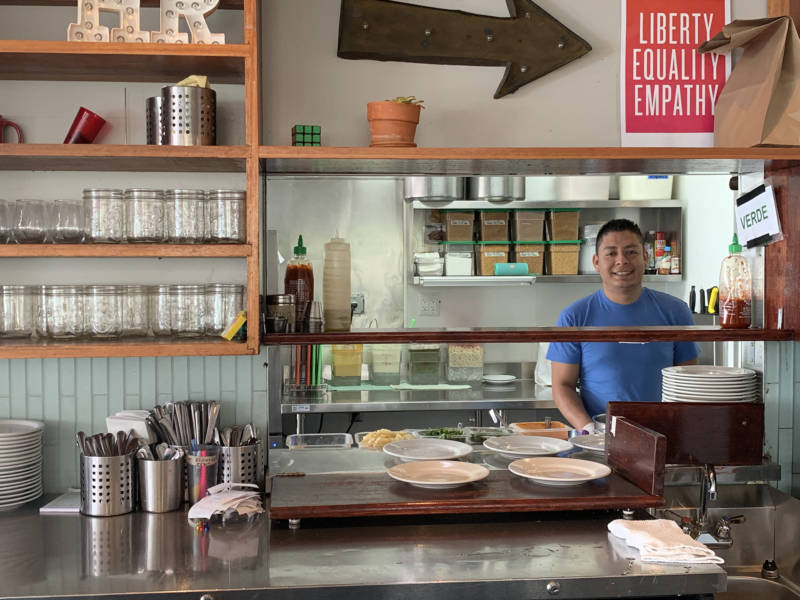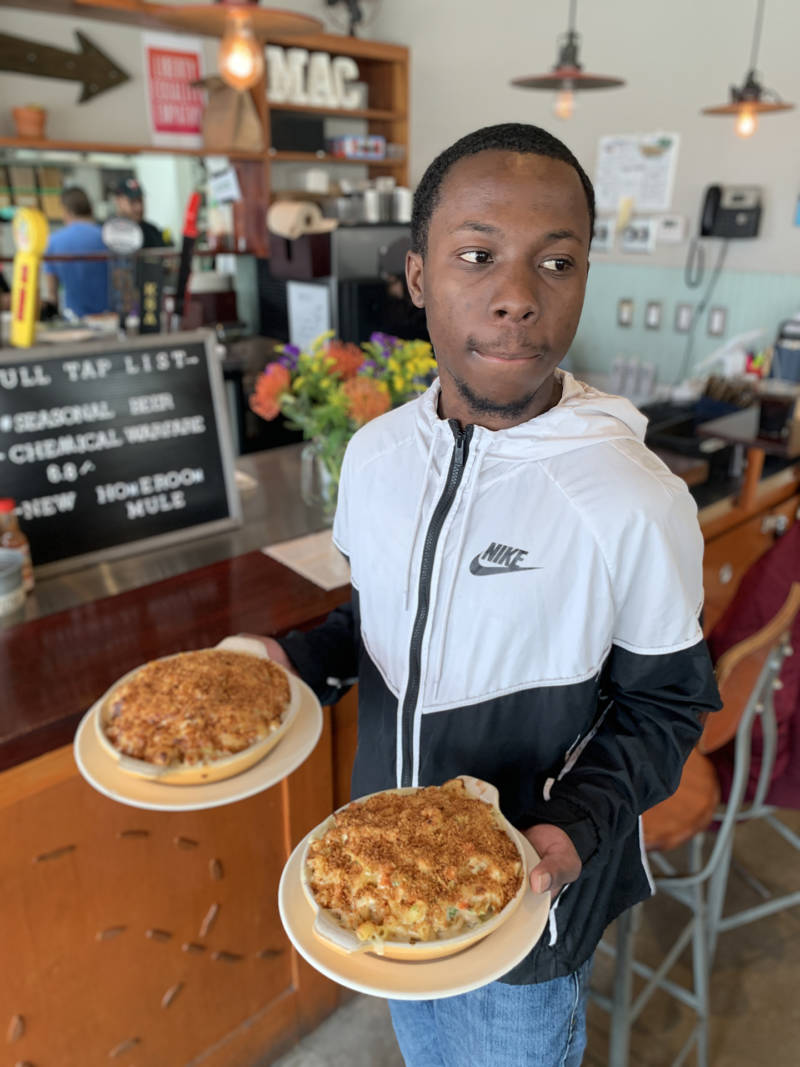Oakland Mayor Libby Schaaf and Councilmember Nikki Fortunato Bas are calling for citywide incentives for restaurant owners who undergo a thorough racial equity training process, after a new report outlined the severity and impact of racial segregation in Bay Area restaurants.
Report: Racial Segregation, Bias Deny Living Wages to Bay Area Restaurant Workers

At a press conference Tuesday, Restaurant Opportunities Centers United (ROC), an advocacy group for restaurant workers, released the findings of a three-year study conducted with Race Forward, an organization focused on racial equity.
The study, which surveyed restaurant employers, workers and consumers throughout California, documented systemic race-based occupational segregation and implicit biases in the restaurant industry that results in lower wages, benefits and working conditions for people of color.
The new report expands on a 2017 ROC study that found the Bay Area's race-wage gap — the difference in pay between white people and minorities working in the restaurant industry — was the highest in the country.
The report attributes the high race-wage gap to the racial segregation of "front of the house jobs" (servers, bartenders and hosts, who directly interact with patrons) and "back of the house jobs" (cooks and kitchen staff who typically remain unseen by diners).

Workers of color represent over 70% of the restaurant workforce in California and those jobs are predominantly concentrated at the back of the house, in lower-wage jobs, according to the study.
Joel Leon is a Mexican American restaurant worker living in Oakland. He says he’s applied to over 20 server positions and interviewed for around half. Despite having previous front of the house experience as an assistant manager at his previous job, Leon has not been able to land a server position.
“I have been denied a lot of times by restaurants for server positions, and they've always offered me back of house positions, such as dishwasher or busser,” Leon said.
Even when people of color are able to find front of the house work, their wages, on average, are lower than white workers in the same position. The study found, for instance, that 51% of white bartenders and 45% of white servers earn livable wages, compared to 28% of bartenders and servers of color in the Bay Area.
Mayor Schaaf and Councilmember Bas were on hand Tuesday to voice their desire to promote equity in the restaurant industry.
"With the restaurant industry being a core part of our economy, with Oakland being a food destination, I think it's really important to make sure that we're making this industry as equitable as possible," Bas said.
"Now that we have data around this, as well as a toolkit, I think it's more possible to change the industry and to make it more accessible to everybody," Bas added.
The study makes several policy recommendations, including a certification process that provides tax and licensing incentives for restaurants that complete equity training.
Bas and Schaaf said they hope to integrate the certification into a program aimed at lowering the race-wage gap in Oakland restaurants.
Erin Wade is the founder of Homeroom, a mac and cheese restaurant in Oakland, which, along with Alta Restaurant Group in San Francisco, underwent an intensive racial equity transformation process as part of a pilot program implemented by ROC. Wade says when the program looked at Homeroom's workforce, they found a serious lack of black workers.
“That seemed like a pretty huge issue that we wanted to correct,” Wade said. “We really want our restaurant to look like our city so that everyone who lives in our city feels like they come to Homeroom and they see themselves represented there”.
With few details announced, Bas and Schaaf said their next step is to meet with ROC staff to explore how these policies can be implemented on a larger scale in Oakland.
In the meantime, ROC is hoping to promote similar restaurant incentives in San Francisco and San Jose.
Read the full report:
